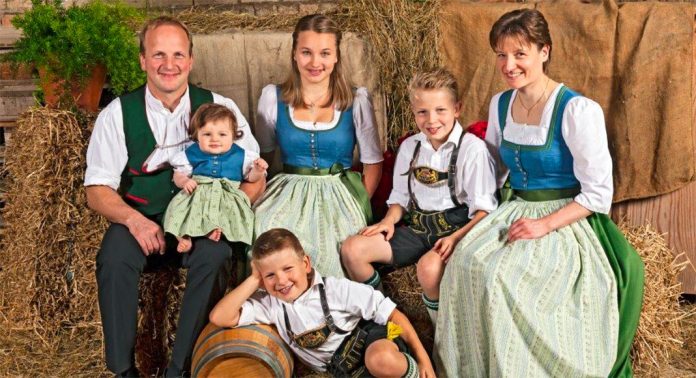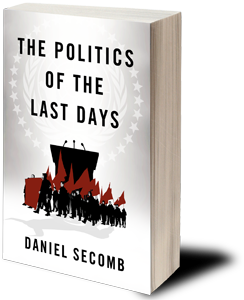
The German Federal Ministry for Family Affairs has supported a brochure that aims at changing the behavior of preschool-aged children who are raised by what the brochure’s authors call “right-wing” parents who oppose “gender” theory, “sexual diversity,” the “sexualization” of children, and “immigration.”
Many Germans are protesting the brochure, calling it unacceptable for the state to intrude into the lives of families. Some have noted how such an intrusion is similar to what had been previously known in Germany during the times of both National-Socialist (Nazi) and Communist dictatorships. The German government is said to have given 4,600 euro to the project.

The brochure was published last month by the Amadeu Antonio Foundation. Dr. Franziska Giffey, the social-democratic German Federal Minister for Family Affairs, contributed a foreword to the 60-page document. It is Giffey’s own ministry that funded the brochure.
Giffey writes in the foreword that it is important to steer “early childhood education in a democratic manner and to orient it toward children’s rights.” The goal is to form a “self-confident life in a world of diversity.” Children should grow up to become adaptive adults who are “immune to group-related misanthropy, as well as to violence that is motivated by religious or political goals,” she writes.
Dr. Giffey writes that “our society has become increasingly polarized” over the last few years, and while there has been “much support for refugees,” there can also be seen “a significant increase of right-wing populist movements.” She appears to be indirectly referring here to the 2015 mass immigration of one million refugees — mostly from Syria, Albania, Afghanistan, and Romania into Germany — and the related problems connected to this event.
The minister calls the brochure an “important work” which she fully supports.
‘Diversity pedagogy’ for pre-school children
Timo Reinfrank, the executive director of the Amadeu Antonio Foundation, writes in his own introduction to the brochure that the issue at hand is about “taking into account the needs of children and about implementing their rights,” as they have been laid down by the 1989 “UN Convention on the Rights of the Child.”
At the beginning of the brochure, authors Enrico Glaser and Judith Rahner write about “extreme attitudes” and “inequality” in general, and thus link what they refer to as “racist” positions to parents who oppose things like gender theory, sexual diversity, and immigration. Parents who have such attitudes are to be detected by their use of “seemingly harmless words which stem, however, from the jargon of the New (or Old) Right and which imply a deeply misanthropic attitude.”
For the authors, what is important about a “Diversity Pedagogy” in forming children is that it helps fight “the expansion of right-wing populism.” For the authors, it is “right-wing” parents who foster “racist debates about flight and asylum” and “refugees,” who foster “fear of indoctrination or ‘premature sexualization of our children’, that is to say the rejection of sexual pedagogy and education concerning gender and sexual diversity,” and who foster fear of “an Islamization of the Occident.”
For the authors of this brochure, it is “part of the educational task to teach children gender equality and the diversity of gender identities and ways of life.” To accept these ways of life is “part of a democratic attitude,” which “is crucial in order to avoid discrimination because of the sex or sexual orientation and in order to empower inter- and transsexual children.”
“Additionally,” the authors continue, “for many children, it is a lived reality to grow up in a rainbow family and thus should also be the lived-out reality in pre-school institutions.”
In the eyes of the authors, “right-wing populist, neo-Right, or religious-fundamentalist groups stir up hatred against the communication of diversity with the help of defamatory words such as ‘genderism’, ‘gender madness’ [“Genderwahn”], or, as we said, ‘premature sexualization’. Meant here is an alleged ‘re-education of our children’, who then supposedly cannot anymore be ‘real’ girls and boys.”
The authors connect this attitude with “anti-feminist, but also homo-, inter- and trans-phobic positions.” The authors point their fingers at average Germans, saying that these so-called right-wing populist attitudes are now to be found “with the middle of society.”
As Glaser and Rahner see it, these so-called racist attitudes have increased “since 2015,” corresponding to the time when mass immigration into Germany took place. “Representative population studies and polls show the huge amount of prejudices and group-related misanthropy in the so-called middle of society,” they state. In the view of these authors, such prejudices and attitudes are now being presented “in state parliaments and even in the Lower House of Parliament.”
‘Racist family’
The state-funded brochure provides examples of attitudes in children (and parents) that must be addressed.
Professor Esther Lehnert and Professor Heike Radvan – members of the Foundation’s Gender and Racism Working Group – give the case of a brother and sister in pre-school who “tell little to the class about what they did over the weekend.” They are, instead, “quiet and passive.” “At the same time, there are no so-called disciplinary problems, these children seem to be especially obedient.” Additionally, the two children are said to show “traditional gender roles”: “The girl wears dresses and braids; at home she is being instructed in house-and-needlework; the boy is physically being strongly challenged and drilled.”
The authors characterize such attitudes and conduct as coming from what they call a “racist family” [völkisch family].
In such cases, write the authors, it is recommended to teach such children (as well as their parents) about “children’s rights” and the existence of “diversity.” As a countermeasure, “corners for rough play could be set up which are not only for boys, and ‘snuggle corners’ that are not only for girls”; the meals, they say, could be culturally diverse and also the pedagogical material could have different ethnic backgrounds.
The authors state that “authoritarian and gender-stereotype parenting styles limit the manifold possibilities of children and [adversely] affect their development.”
The authors cite another example of attitudes in children (and parents) that must be addressed, this time regarding gender theory. They paint the scenario of a mother who is upset at a teacher for letting a male child dress up as a girl in the pre-school dress-up and make-up corner. “A boy lets his fingernails be painted by them [other children].” The next day, the mother of that boy comes and “declares that this has a bad influence upon her child; children should not be further confused; boys are boys, girls are girls, and she herself wishes that her boy ‘will later turn out to be a real man.’”
The proper response of the teacher, say the authors, is to “explain that gender diversity and tolerance are welcomed at the pre-school” and that children should be encouraged to “experiment with themselves.” Such children should be exposed to appropriate “reading materials and games” and should be “among others for make-up and dress up games.” The authors then state how the teacher is to respond when the mother “loudly rejects this,” and uses phrases such as “’premature sexualization,’” declaring that children should not be “indoctrinated here with this ‘gender nonsense’” and threatens to “raise her children herself.” The teacher must tell the mother that her “assumption” that boys do not paint their fingernails points to her own “gender-specific, social roles” that “are being given” to her son.
From the perspective of children’s rights, the authors continue, and in light of professional assessments, “gender-stereotypical interventions do not properly perceive the needs and demands of the individual child.” Children, they add, are thus being “deprived of possibilities for an individual development.”
According to the “pedagogy of diverse lifestyles” and the “freedom of choice in socialization,” such a mother who rejects her son’s painting his fingernails, “has to be located in the context of neo-Right or fundamentalist ideologies.”
Among the representatives of such rightist ideological movements, the authors especially name Gabriele Kuby, author of The Global Sexual Revolution, whom they call an “ultra-conservative Catholic author.” They point out that Kuby has spoken out against the “premature sexualization” of children. “The New Right and Christian-fundamentalist actors have then picked up this word” and turned it now into a “battle slogan,” they explain. The authors criticize those who promote “familistic…initiatives” (The word “familistic” — “familistisch” — seems to mean here people who support the traditional family and desire to strengthen family ties).
Families with such tendencies, the brochure explains, should be given to understand that “freedom of choice” is important in “processes of socialization” among children.
Read the rest of the article at LifeSiteNews.com
 Register your interest for Daniel Secomb's new book, "Politics of the Last Days"
Register your interest for Daniel Secomb's new book, "Politics of the Last Days"
Daniel's new book explores the integral and fascinating role that politics will play in the end times.
He demonstrates that political philosophy is actually underpinned by biblcal principles and that by examining the political history of the past can give us a fascinating glimpse into how Biblical end times events will unfold.
Be sure to sign up with your name and email address to be notified of updates and the upcoming release date of the book.
















